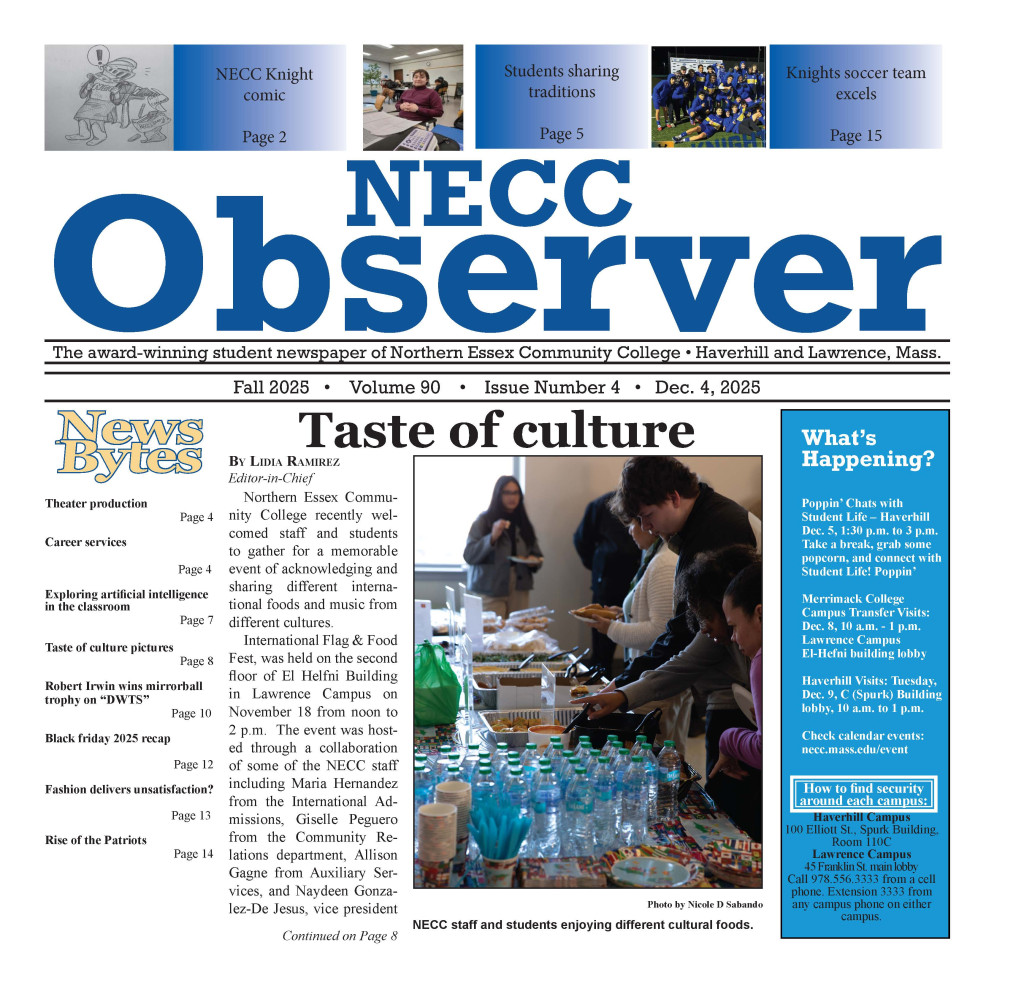Constant use of mobile devices is causing NECC students a real pain in the neck.
In a recent poll, half of the NECC students asked said that they spend more than two hours per day looking down at their phones.
According to the American Chiropractic Association, the average American sends and receives more than 40 text messages per day.
“I’m not surprised,” said NECC student Sam Bergeron, who offers a suggestion to “text neck” sufferers. “Delete social networks.”
“Text Neck,” coined by chiropractor Dean Fishman, has become the official term adopted by healthcare professionals to describe the pain caused by several hours of emailing, gaming and texting.
“I didn’t even know there was a term for it,” said NECC student Paul Giordano. “Whenever I look at my phone for a long time, my neck is always sore when I stand up.”
Instead of raising our arms to view the screens of our devices, we tend to rest the phone or tablet on our laps which causes our heads to be lowered to an unnatural position.
“Posture is very important. You should try to keep your head in a neutral position no matter what you’re doing,” said Rob Wormald, spokesperson for the Health and Wellness Center.
The human head, which weighs approximately ten pounds, is adequately supported by the neck and spine while the chin is lifted to a parallel position to floor.
However, an additional ten pounds of pressure is added for every inch that the chin is lowered toward the chest causing strain on the neck, back and shoulders.
If left untreated, “text neck” can lead to poor posture, permanent curvature of the spine and costly medical treatments.
Joe Parker of NECC’s Movement Science Department is a specialist in corrective exercise and explains that “the lever of the neck is like a seesaw and works best when it is balanced.”
According to Parker, there are exercises that may help to alleviate symptoms of ‘text neck’. The Health and Wellness Center is equipped with a full gym and is free for all current students.
For any non-emergency health concerns you may have on campus, contact the Health & Wellness Center at 978) 556-3819.

